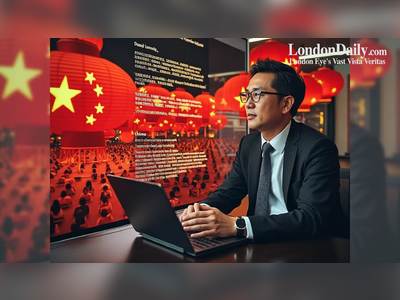
Delivery Apps Pressured to Disclose Algorithmic Operations Affecting UK Couriers
Campaigners urge transparency from UberEats, Deliveroo, and Just Eat as calls for AI regulation grow.
A coalition featuring the Trades Union Congress (TUC), Amnesty International, and courier unions has demanded greater transparency from delivery apps regarding the 'black-box algorithms' that impact over 100,000 UK couriers.
These algorithms determine pay, job access, and work conditions for the couriers employed by major platforms like UberEats, Deliveroo, and Just Eat, companies collectively generating nearly £9 billion annually.
The group, which includes Privacy International and the App Drivers and Couriers Union, claims the obscured use of algorithms is causing 'exploitation' and 'precarity' among workers.
They accuse these companies of using algorithms to decide on deactivation, work allocation, and compensation without sufficient clarity or explanation, leaving workers without the means to understand or contest these decisions.
This call for increased transparency echoes broader demands on the UK government to ensure AI systems' openness, particularly with their integration into public services, such as the welfare system.
Jonah Mendelsohn from Privacy International highlighted that workers should be informed about how algorithms impact their employment status and earnings, stressing that AI governance scrutiny is growing globally.
In response, Deliveroo stated that their algorithm, known as 'Frank', utilizes machine learning to predict delivery timings and optimize rides to increase courier earnings.
The company indicated that any account terminations due to suspicious activity involve human review processes.
Just Eat reported that their couriers earn above the London living wage and maintain open communication through events like StreetMeets, where couriers can express concerns.
Uber, another major player, has not provided a direct comment.
In the United States, the state of Colorado has implemented laws mandating ride-sharing companies to disclose deactivation criteria and fare calculations.
Uber is challenging this legislation in court, citing First Amendment rights and potential distractions for drivers.
Recent polling by the Centre for Long-Term Resilience, conducted with Public First and shared with The Guardian, indicates that 62% of respondents are concerned about AI-related risks.
These concerns include cyber-attacks, job displacement, misinformation, and accidents from AI systems overtaking human roles.
Meanwhile, the UK government, under Keir Starmer, has shifted its focus towards harnessing AI for economic and public service improvements, as more employers integrate AI into their operations.
These algorithms determine pay, job access, and work conditions for the couriers employed by major platforms like UberEats, Deliveroo, and Just Eat, companies collectively generating nearly £9 billion annually.
The group, which includes Privacy International and the App Drivers and Couriers Union, claims the obscured use of algorithms is causing 'exploitation' and 'precarity' among workers.
They accuse these companies of using algorithms to decide on deactivation, work allocation, and compensation without sufficient clarity or explanation, leaving workers without the means to understand or contest these decisions.
This call for increased transparency echoes broader demands on the UK government to ensure AI systems' openness, particularly with their integration into public services, such as the welfare system.
Jonah Mendelsohn from Privacy International highlighted that workers should be informed about how algorithms impact their employment status and earnings, stressing that AI governance scrutiny is growing globally.
In response, Deliveroo stated that their algorithm, known as 'Frank', utilizes machine learning to predict delivery timings and optimize rides to increase courier earnings.
The company indicated that any account terminations due to suspicious activity involve human review processes.
Just Eat reported that their couriers earn above the London living wage and maintain open communication through events like StreetMeets, where couriers can express concerns.
Uber, another major player, has not provided a direct comment.
In the United States, the state of Colorado has implemented laws mandating ride-sharing companies to disclose deactivation criteria and fare calculations.
Uber is challenging this legislation in court, citing First Amendment rights and potential distractions for drivers.
Recent polling by the Centre for Long-Term Resilience, conducted with Public First and shared with The Guardian, indicates that 62% of respondents are concerned about AI-related risks.
These concerns include cyber-attacks, job displacement, misinformation, and accidents from AI systems overtaking human roles.
Meanwhile, the UK government, under Keir Starmer, has shifted its focus towards harnessing AI for economic and public service improvements, as more employers integrate AI into their operations.











